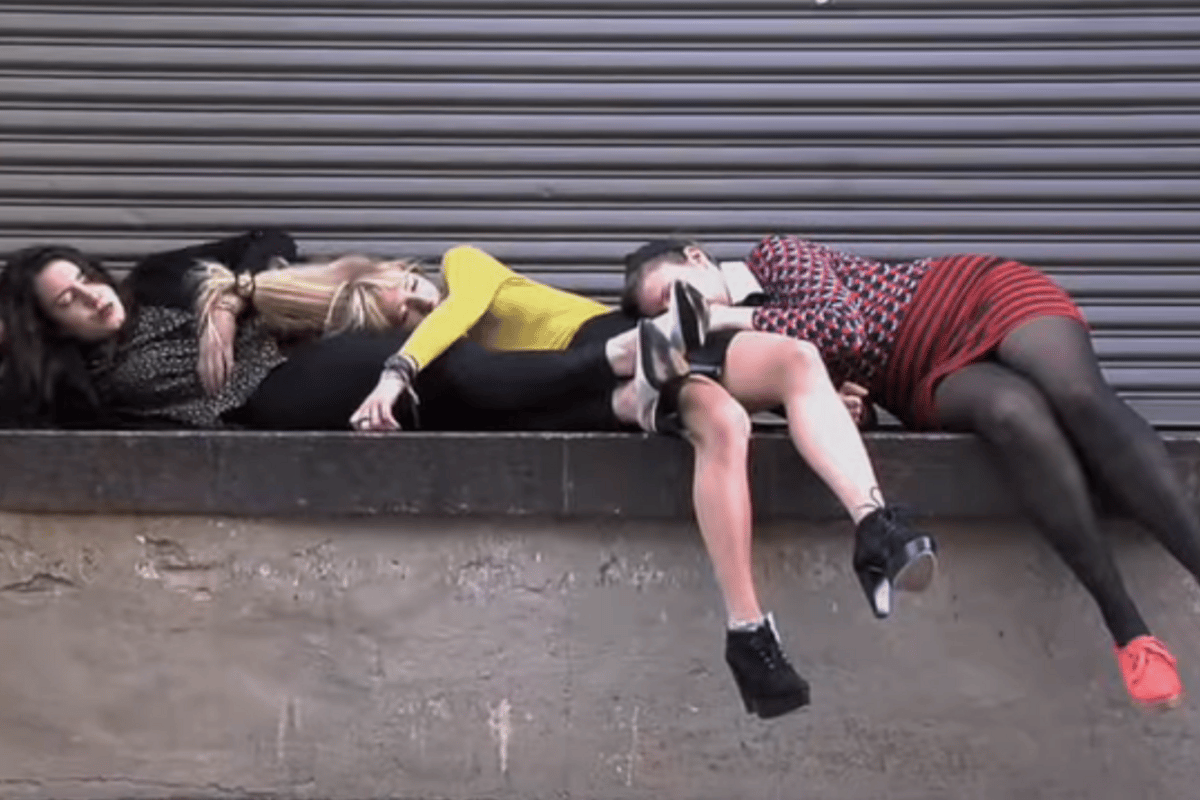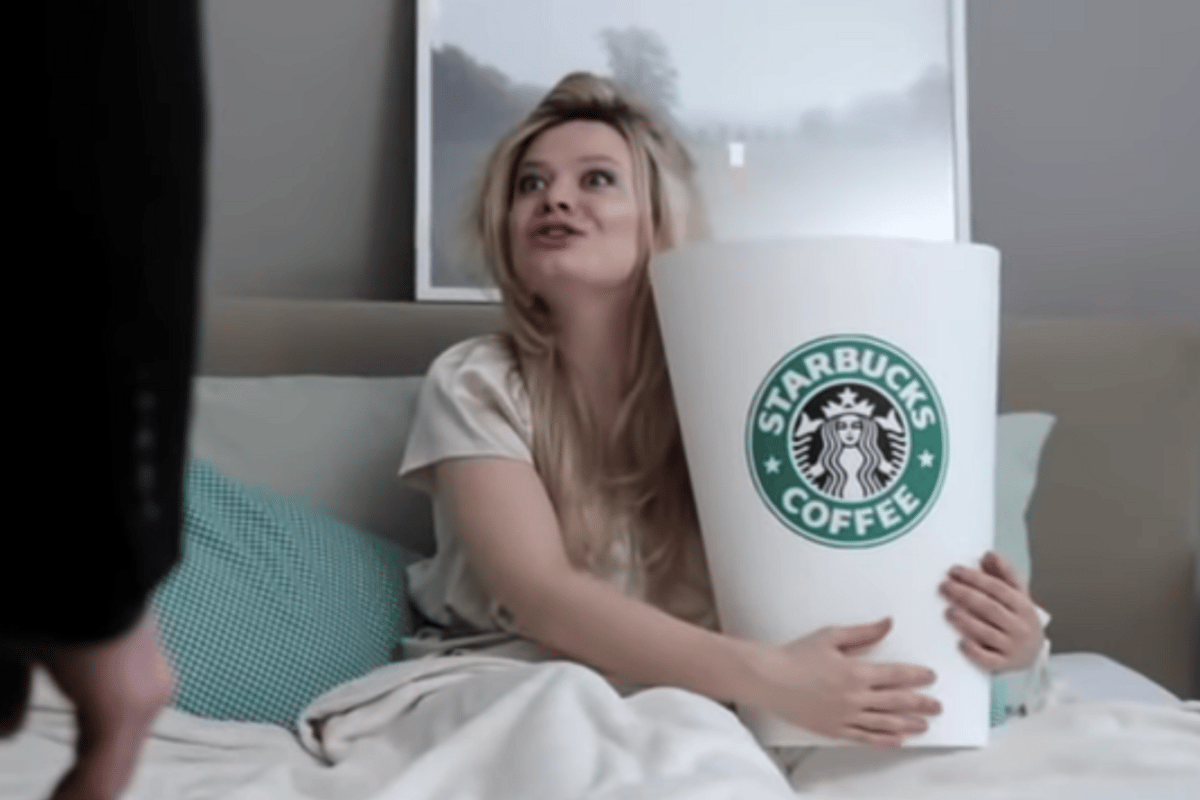- Magazine Dirt
- Posts
- On the web series
On the web series
Lead us out of IP myopia.

Delusional Downtown Divas (YouTube)
Daisy Alioto in conversation with Kold Open’s Georgia Rippin.
Back in May 2022 I asked, “where will the next great web series come from?” I was thinking about Very Mary-Kate, Delusional Downtown Divas and FunnyOrDie sketches like Drunk History, the latter of which made it to network television, and especially Issa Rae’s Awkward Black Girl, the show that became HBO’s Insecure.
When I met Georgia Rippin, the co-founder and CEO of Kold Open, we had a wide-ranging convo about this very topic and agreed to do it on the record next time. Kold Open is a B2B online marketplace that allows studio executives to be able to discover web series and develop them into full-length shows. Rippin previously worked in-house at an international studio with web series hits including Workaholics and Flatbush Misdemeanors. Below is an edited transcript of our conversation.

Daisy Alioto: When did you first know that this is a problem that you wanted to solve?
Georgia Rippin: I think it was probably when I was at university. I was watching a lot of Broad City, which I think a blogger wrote about, which is how I knew it was on YouTube. And at the same time, High Maintenance was really picking up on Vimeo.
I'm originally from New Zealand and essentially being in the bottom of the world, I was like, "Oh my God, this is incredible,” it was a stepping stone for people that weren’t tapped into the American film system and didn’t have any connections. (I constantly lamented the fact my parents did not know Peter Jackson.) I just became obsessed with the web series as a medium. It felt like a hack for getting into the industry.
DA: We’ve previously talked about how the web series format infiltrated some of the fourth wall breakage, confessional moments in sitcoms like The Office. It was as if network sitcoms absorbed the film conventions of the web series (and the limitations of the web series) to seem more authentic.
Abbott Elementary has brought back some of that style, mingling with the sort of faux documentary, mockumentary format. But it does feel like people are looking for alternatives to sitcoms that feel really manufactured. And like you said, there's a discoverability problem. Allegedly, I’m discovering videos on TikTok all the time, but they very much feel like they’re made to feed the algorithm and not to form the basis for something more substantial.
GR: Interesting that you brought up Abbot Elementary because you know Quinta Brunson came up as our web series creator…
DA: Yes!
GR: Okay, multiple things to unpack with that. I feel like Brunson incorporates a lot of web series tropes because if you start off as a web series creator, you are very aware of how to use resources. The style of that show is so smart in the way that it’s very confined, it’s obviously predominantly a soundstage show with a recurring cast.
She studied the business of media and she's talked about the fact that it's really informed how she creates the show and how they're constantly trying to make it broader rather than going really niche.
I don’t think a lot of the content being created on TikTok is intended to scale to full length. And if it is, I think it's mis-intended. Firstly, because of the medium and the fact that the phone is shot vertically; when a development exec looks at that, they don’t see it scaling to a horizontal format. Secondly, I absolutely agree with you about feeding the algorithm. Because it almost feels that gaining followers and potentially sustaining a livelihood by becoming a creator, is the end unto itself with TikTok.

Very Mary-Kate (YouTube)
DA: Within the platform that you're building, are you planning to have any sort of internal algorithm?
GR: Yes, that's where we want to get to. But it's actually not on the consumer side because interestingly enough, all the web series that were successful in going to full length, had pretty much no or very little consumer traction before they became successful. Like Flatbush Misdemeanors was not a bust out, viral sensation in a broad setting when it started off.
DA: Interesting. And what do you think the new lifecycle of this content will be? Do you think we'll have a world where we're seeing more web series on Apple TV and Netflix? Do we need new consumption platforms as well? Or is the problem really bridging the gaps between short form video and studio discoverability right now, so that things can actually get on the streaming platforms that already exist?
GP: There are web series subscription services in existence. As a consumer, I personally think it’s really hard to justify paying for a web series streaming subscription just because you're inundated with all this advertising and cultural narrative for bigger shows on HBO and Netflix. Finding a paying audience for web series before they become full-length series is hard.
At the moment, I think there's a huge amount of these limited drama series, which are insanely expensive to make, and also not really re-playable and able to be syndicated. Because it's kind of a one-off big drama series like a Jeffrey Dahmer or something like that. So it's leaving less room for quirky, interesting, specifically comedy-bent stuff because that's not what the studios are programming right now.
DA: So you think the documentary boom has eaten into money that would've previously been spent on stuff that's more lighthearted and experimental?
GR: I wouldn't say the documentary boom. I think it's that scripted drama boom. Like the Ozarks and things like that. But it honestly makes no sense to me because no one's going to go back and watch Ozark again. It's not something that really travels the generations. It's a thing to get people onto the platform, but then it doesn't keep people on the platform.
DA: I'm trying to think of an example of a web series that has been adopted that isn't a comedy, but it does feel like it's just an inherently lighthearted format.
GR: I think all the major ones have been comedies. I guess High Maintenance is a comedy drama.
As a consumer, I personally think it’s really hard to justify paying for a web series streaming subscription just because you're inundated with all this advertising and cultural narrative for bigger shows on HBO and Netflix.
DA: I love(d) High Maintenance and I've been thinking about rewatch-ability recently because there's definitely something in the zeitgeist right now with people re-watching Girls. 10 years passed, Gen Z's discovering it, putting clips on TikTok. And re-watching Girls definitely feels like a distinct experience. I'm rewatching Mad Men right now, and that feels like a distinct experience.
I think there's this timelessness, you used the example of Ozark. Ozark is not really timeless. Maybe Breaking Bad is though, but I think my bar for whether something is timeless or not, is if the experience of re-watching it feels like its own distinct thing, distinct from watching it for the first time. And you just can’t say that for a lot of shows.
GR: Studios and networks are really leaning on rebooting IP. So we’re seeing stuff like Wednesday, obviously very successful, but there’s less of a push to fund stuff born of this time–2023.
Daisy: Are there certain individual creators working today that you would want to see make a web series?
GR: I would love to see @guywithamoviecamera make his own show in a Lily Collins-esque pivot who also started off as an entertainment reporter. Also, @mr.aphrica who does HILARIOUS sketches on TikTok. They both starred in the Kold Open show I created Under the Influencer as lead roles. They knocked it out of the park as performers when I collaborated with them, so hyped to see them make longer-form content.
I really like @glamdemon2004 I think she has a really funny and interesting point of view. I would love to see what it would be like if she was writing web series about her experiences in New York.